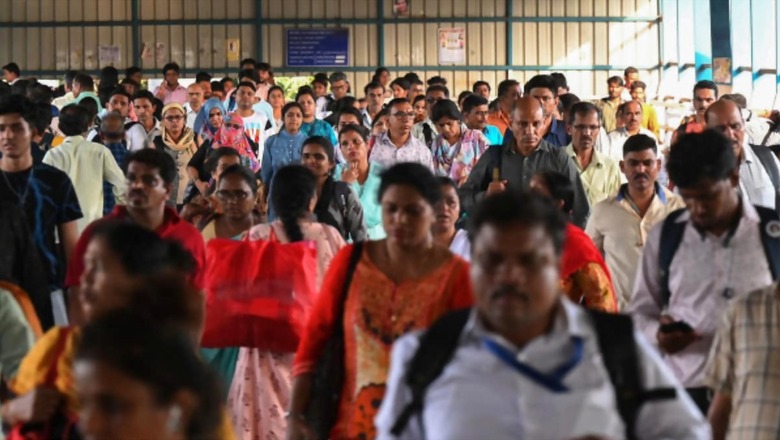
views
While a number of institutions have been raising the issue that we are currently in a period of global democratic decline, a new paper says otherwise. According to “Subjective and Objective Measures of Democratic Backsliding”, democracy is an inherently multidimensional concept and there are many ways to slice the data. The paper by associate professors Andrew Little from the University of California at Berkeley, and Anne Meng of the University of Virginia, says that despite the general narrative that we are in a period of global democratic decline, there have been surprisingly few empirical studies to assess whether this is systematically true.
“Most existing studies of backsliding rely heavily, if not entirely, on subjective indicators which rely on expert coder judgement. We survey other more objective indicators of democracy (such as incumbent performance in elections), and find little evidence of global democratic decline over the last decade,” they said in the paper published in January.
To explain the discrepancy between trends in subjective and objective indicators, they develop formal models that consider the role of coder bias and leaders strategically using more subtle undemocratic action.
They said that the simplest explanation is that recent declines in average democracy scores are driven by changes in coder bias.
They also said that while they cannot rule out the possibility that the world is experiencing major democratic backsliding almost exclusively in ways which require subjective judgement to detect, “this claim is not justified by existing evidence”.
In a report published in 2022, authors Sarah Repucci and Amy Slipowitz said that global freedom faces a dire threat and around the world, the enemies of liberal democracy—a form of self-government—are accelerating their attacks.
“The Global Expansion of Authoritarian Rule” also added that the authoritarian regimes have become more effective at co-opting or circumventing the norms and institutions meant to support basic liberties.
“Those countries that have struggled in the space between democracy and authoritarianism, meanwhile, are increasingly tilting toward the latter. The global order is nearing a tipping point, and if democracy’s defenders do not work together to help guarantee freedom for all people, the authoritarian model will prevail,” the report said.
Another report, also published last year by the Varieties of Democracy (V-Dem) , said that there has been a decline of democracy over the past decade.
“This intensifying wave of autocratisation around the world highlights the need for new initiatives to defend democracy,” it added.
Mentioning India, the authors of the latest paper said several of the countries that are experiencing backsliding according to V-Dem and Freedom House data have huge populations, including India, and so the trends look worse when these countries are weighted more heavily.
Countering these narratives, the new paper looked across different indicators and says that the authors have found a much more mixed and inconsistent picture than the work that raised warnings about global democratic backsliding.
“The bulk of the indicators which exhibit more backsliding are on relatively subjective measures with substantial disagreement among expert coders. On relatively objective measures, we see little of any clear trends of backsliding,” the researchers said.
However, they also said that these things do not imply that concerns about democratic backsliding are misplaced.
“For example, suffrage and incumbents regularly losing elections are key to democracy and relatively easy to measure, but are not necessarily more important than factors like government censorship and the independence of electoral management bodies, which are harder to measure. And in principle it may be the case that there is really systematic backsliding on these more subjective measures even while the more objective measures haven’t dramatically changed,” they added.
The paper suggested that we should be cautious about making strong and broad claims about global backsliding based primarily on subjective measures which in turn could be influenced by a narrative that backsliding is occurring.
“While we have no strong evidence that such a feedback loop is the primary driving force (or even a driving force) behind the decline in subjective democracy scores, this is a hypothesis worth exploring… Subjective indicators can capture many facets of democracy which are hard to capture with objective measures, and may be more precise on an individual observation level,” they said.
While concluding the paper, the authors also said that media coverage may create the kinds of bias they highlight in the coder model. They also added that there is evidence of increased media and scholarly attention to democratic erosion and this increase is much more dramatic than even subjective measures of democratic backsliding.


















Comments
0 comment